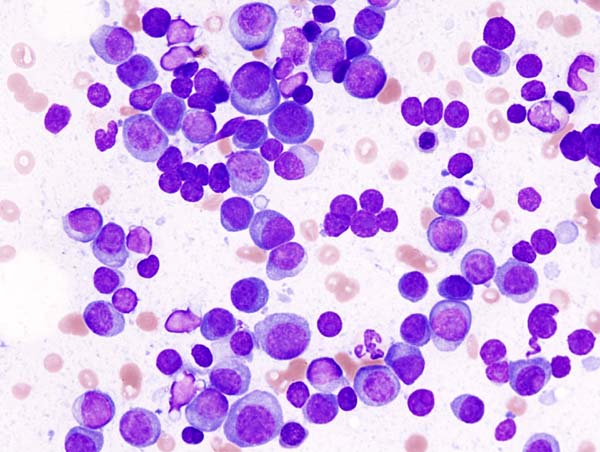
A new treatment for adults suffering from relapsed and refractory multiple myeloma (RRMM) – a type of cancer that does not respond to therapy – has been approved by the FDA, despite its side-effects.
The drug, named seinexor, will be marketed by Karyopharm Therapeutics under the brand name Xpovio to patients who have received at least four prior therapies and for whom treatment has so far proven unsuccessful.
The regulator accelerated its approval based on a clinical trial showing a 25% tumor response rate, in which 83 patients with RRMM were treated with Xpovio in combination with another drug called dexamethasone.
The move has not gone without controversy, however, given the various side effects caused by the drug, including reductions in platelets and red blood cell counts that can lead to serious infections, as well as a decreased appetite and weight.
Richard Pazdur, MD, director of the FDA’s Oncology Center of Excellence, said: “While there is no cure for multiple myeloma, there are FDA-approved treatments to target the cancer and slow down the spread of the disease.
“Sadly, often over time, patients can exhaust all available treatments and still see their disease progress.
“Under our accelerated approval programme, we approved a treatment that provides a treatment option for patients with multiple myeloma with no available therapy.”
How does multiple myeloma develop?
Multiple myeloma, also known as plasma cell myeloma, is a type of blood cancer caused by DNA damage in the development of plasma cells in the immune system.

The abnormal cell then starts to multiply and spread within the bone marrow, releasing large amounts of the antibody known as para-protein, which has no useful function.
As it can occur in several places in the body, it is often called multiple myeloma.
According to the blood cancer charity Myeloma UK, there are almost 17,500 people living with myeloma in the UK, with the disease accounting for 15% of blood cancers and 2% of all cancers.
Myeloma mainly affects those over the age of 65, however it has been diagnosed in people much younger.
What are the safety risks of the FDA-approved refractory multiple myeloma treatment?
Despite being used to authorise the approval of Xpovio, the clinical trial also raised concerns about patient safety due to several side effects.
Common unintended results of patients taking Xpovio in combination with dexamethasone include a reduction in white blood cells, a low count of platelets – a condition known as thrombocytopenia – and a reduction in red blood cells – more commonly known as anaemia.
Patients also reported vomiting, nausea, fatigue, diarrhea, fever, decreased appetite and weight, constipation, upper respiratory tract infections and low blood sodium levels (hyponatremia).
Therefore, healthcare professionals administering Xpovio are advised to monitor patients for low blood counts, platelets and sodium levels, as well as to optimise the patient’s hydration status, blood counts and other medications used to avoid dizziness or confusion.
Moreover, women who are pregnant or breastfeeding are instructed not to take the treatment, as it may cause harm to a developing fetus or newborn baby.
Xpovio must be dispensed with a patient Medication Guide that gives important information about its uses and risks, as well as advising doctors to reduce dosing when certain side effects are observed.





